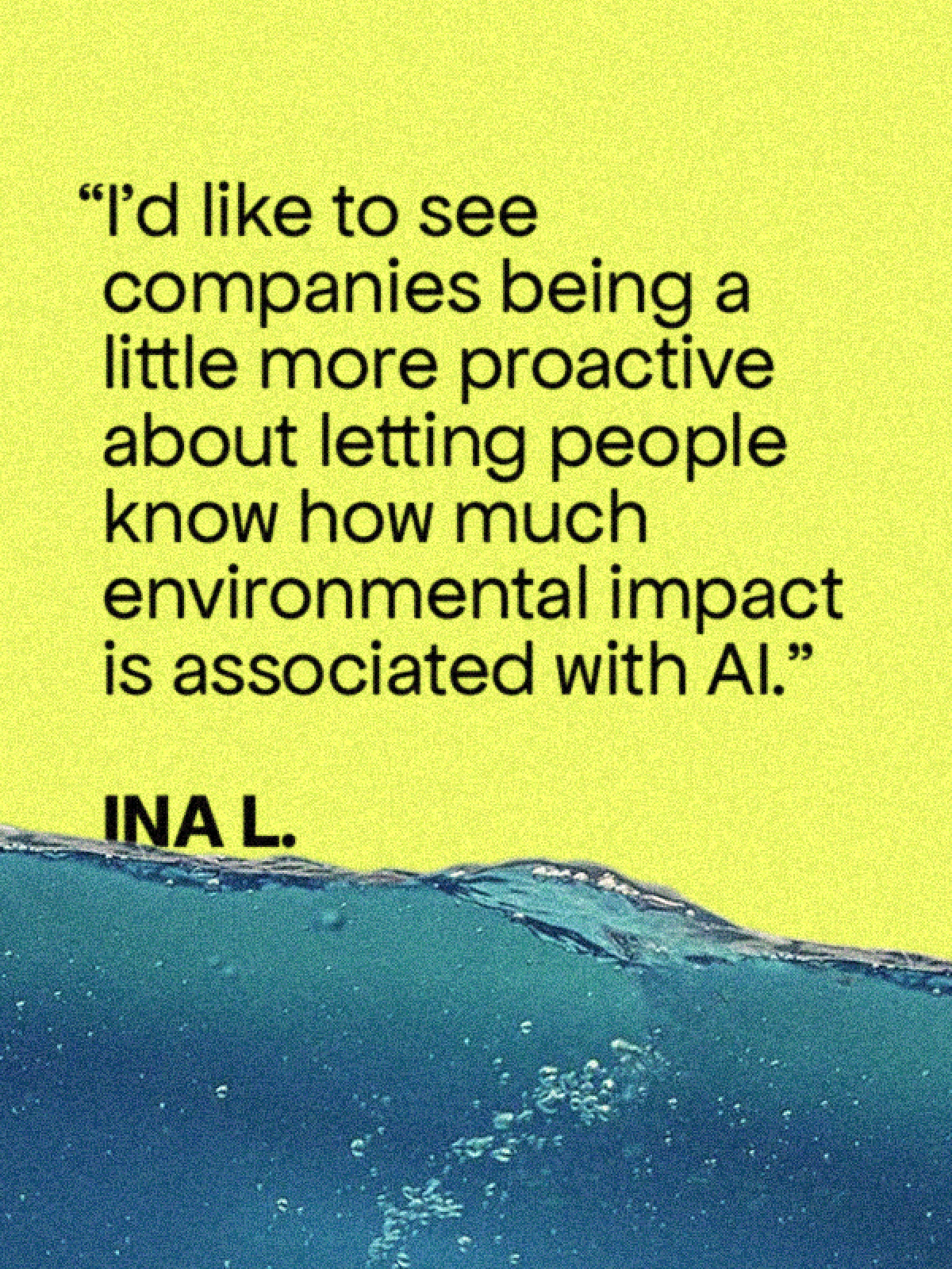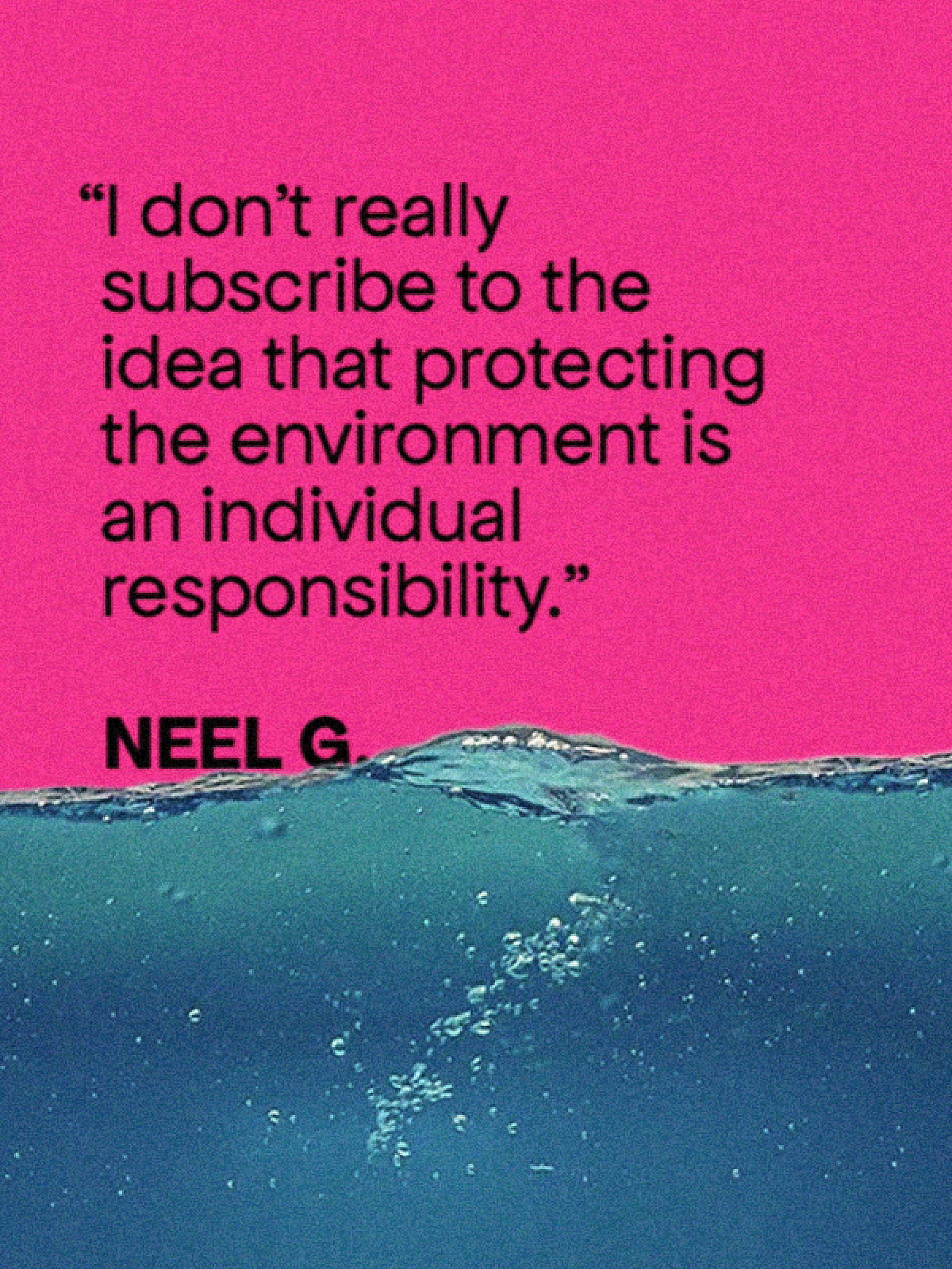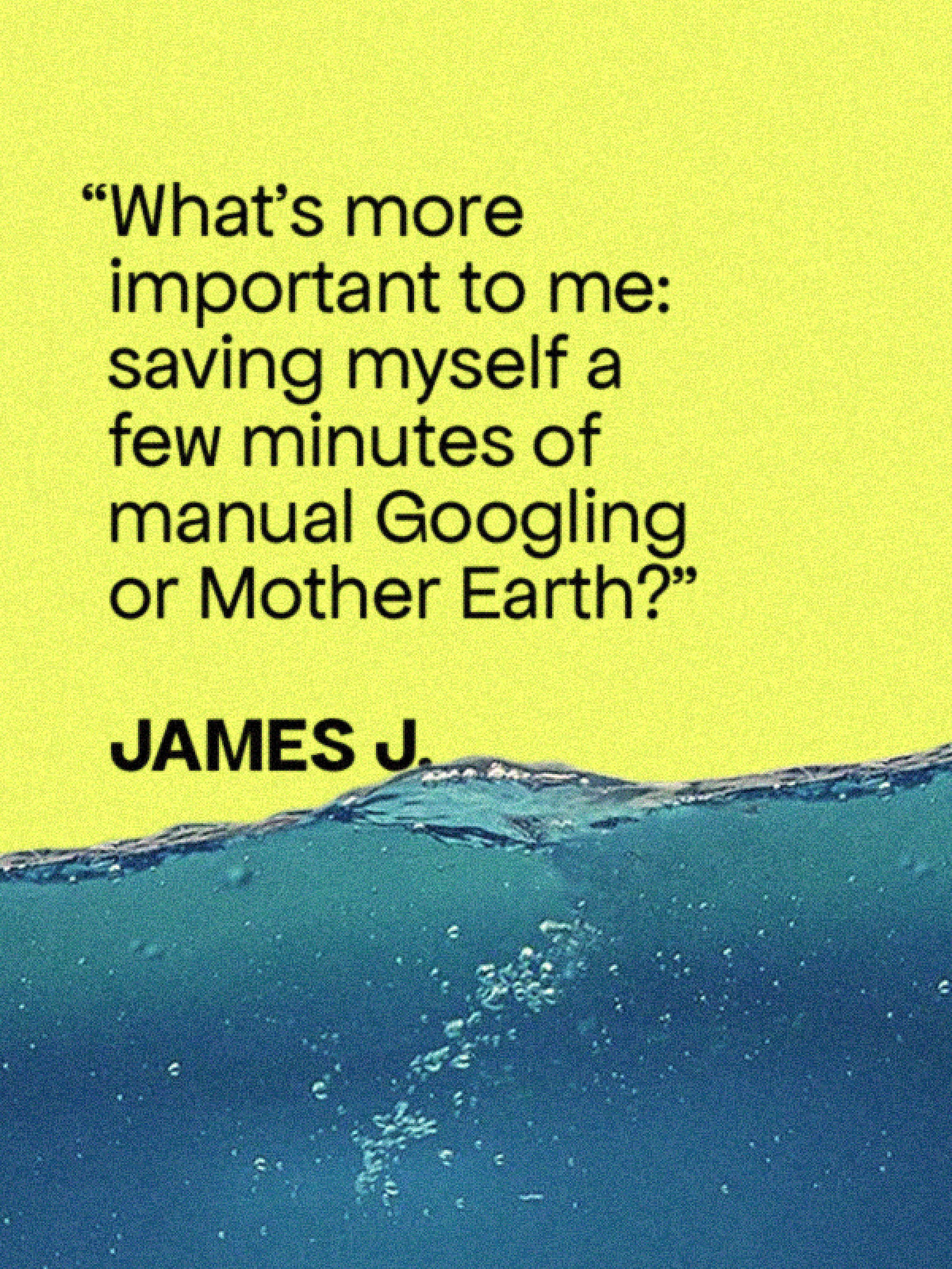We recently launched Group Chat, a curated group of curious Gen Zers from across the country who are fueling our insights and helping us get to know their generation even better. (If you’re interested in applying, learn more here!)
Last year, as Shein seemingly secured a foothold on every FYP across America, I struggled to wrap my head around a rapidly growing dissonance. How did Gen Z, the so-called “sustainability generation,” become the biggest proponent of the fast fashion industry? I sought to parse out their aspirations with their consumer behavior, to better understand what really motivates their purchasing decisions.
Two months into the new year, we’ve arrived at a new junction of intrigue. Just like fast fashion, Gen Z swears by AI — a tool as convenient as it is environmentally questionable. Globally, AI-related infrastructure may soon consume six times more water than Denmark. Similarly, an average session on ChatGPT, with 10–50 responses, is estimated to use up to a half-liter of fresh water. And training an AI model can produce about 626,000 pounds of carbon dioxide — the equivalent of around 300 round-trip flights between New York and San Francisco.
Yet AI only continues rising in popularity among Gen Z. When we asked our Group Chat if they use AI tools, every single member said yes, at least in some capacity, and few expressed environmental concerns — a notable departure for our collective, which regularly cites sustainability as one of their top priorities. It begs the question: how to balance a concern for sustainability with AI usage? Are we aware of the environmental implications? Is AI more important than sustainability?
To try and make sense of it all, I spoke in-depth with Group Chat members who fall on opposite ends of what I’m calling the AI spectrum: those who utilize it every day and those who limit their use over environmental concerns.
While they may disagree on the extent to which they use AI, all of our participants believe their generation isn’t adequately informed on the environmental implications associated with AI usage. Audrey P. says, “I don’t think mainstream media is focusing on this issue since AI has become so profitable.”
Similarly, Ina L. notes, “I’d like to see companies being a little more proactive about letting people know how much environmental impact is associated with AI so we can opt out of environmentally expensive things we don’t need. I try to use AI when I need it, and when it’s the best tool for the job — if I can do something by hand, I do.”
Perhaps on the fringe side of things, Neel G. asserts that the onus of ethical AI usage solely falls onto corporations: “I don't really subscribe to the idea that protecting the environment is an individual responsibility. Frankly, the individual responsibility we've been taught for most of our lives just seems to me pretty blatant propaganda from powerful institutions that prefer to shift the burden onto individuals rather than face issues themselves.”
Seeking knowledge on the more granular machinations or byproducts of AI can also be esoteric. “When the average person goes on ChatGPT or something similar, they think it’s just some quick magical response and they don’t think about the computational energy involved in the response,” says Nolan S.
The intangibility of AI pushes climate concerns even farther from our consciousness. If you can’t see the water and energy being exerted to power up AI machines, can it ever have the same mental impact as, say, littering? It’s always easier to deal in the immediacy, and what is AI if not a tool designed to make solutions more immediate?
“I think the use of [AI] has just furthered our generational need to try to find the easy way out, making it less about true learning and more about answering the question,” Meagan F. says. “It truly comes down to convenience vs. hard work and nowadays, reading an article or a book is considered hard work for my generation.”
The allure of convenience, at times, becomes systemic. James J. muses, “I’ve recently been thinking, ‘Do I really need to use [AI] or am I just so removed from the traditional way of doing things, like writing my own damn emails or looking up things on Google like a normal person, that I’m setting the Amazon on fire just so I can quickly gather [information]? What’s more important to me: saving myself a few minutes of manual Googling or Mother Earth?’ When I realized this I think I almost cried.”
While perspectives on the dissonance between AI usage and its subsequent environmental implications vary among our Group Chat, Gen Z’s penchant for convenience holds strong, as does its demand for more transparency from corporations.







